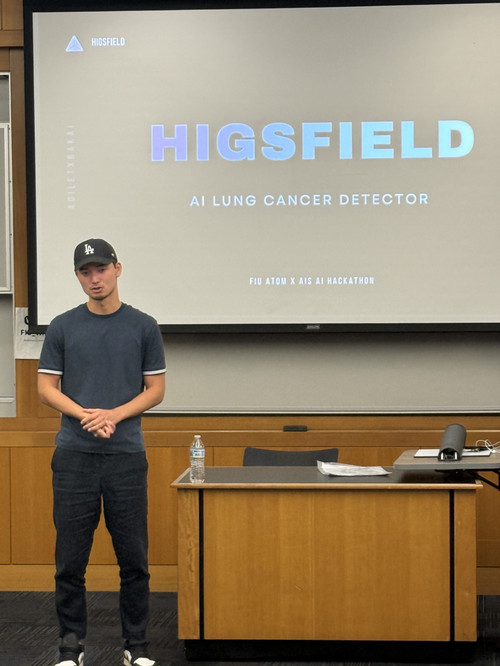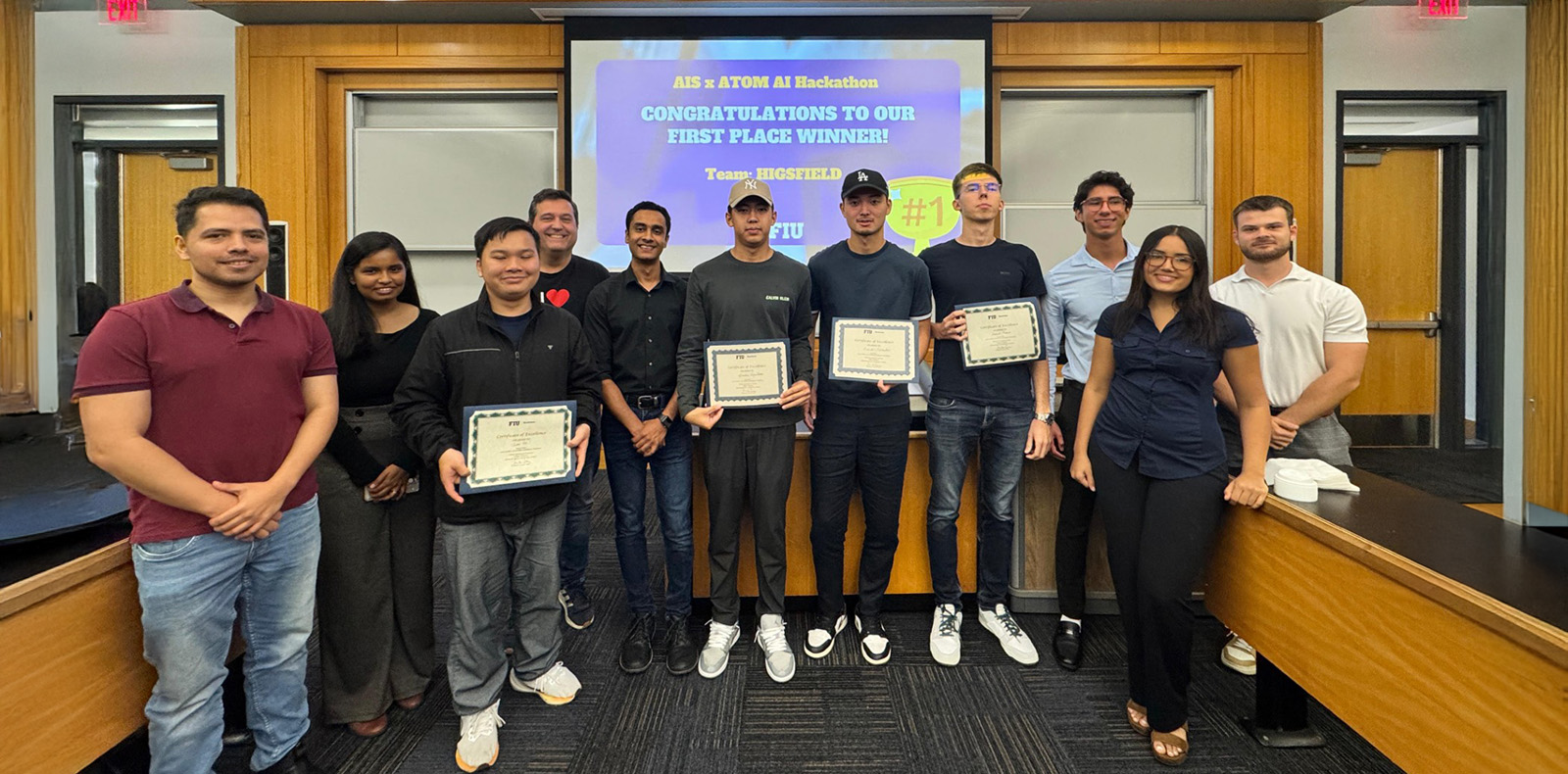Armed with innovation and a personal mission, FIU Business students Adilet Sultanbek and Bakai Aibekovich Asylbekov, majoring in information systems and business analytics, took top honors at the ATOM x AIS Hackathon Challenge held October 10, 2025. Their winning project, “Higgsfield AI,” uses artificial intelligence to detect lung cancer from CT scans and patient-reported symptoms, offering a potentially life-saving tool for underserved communities.
The two-day hackathon, hosted by the ATOM Think Tank at FIU Business and the Association for Information Systems (AIS), challenged students to develop tech-driven solutions aligned with one of the 17 United Nations Sustainable Development Goals. Teams were judged on problem significance, solution clarity, innovation, business viability, and prototype quality.
Sultanbek and Asylbekov’s project was inspired by Sultanbek’s grandfather, who was misdiagnosed in Kazakhstan and only received proper treatment after traveling to Germany. “He had the same scans, the same data, but only in Germany did they detect the cancer early,” Sultanbek shared. “I thought, how many grandfathers don’t have that chance?”

Adilet Sultanbek presenting his project "Higgsfield AI."
Their solution combines two AI models: Roboflow, which analyzes CT images for tumors, and OpenAI, which interprets patient symptoms. The chatbot provides a probability score and recommends further medical evaluation. “It’s not a diagnosis,” Asylbekov clarified, “but it helps people act faster or feel reassured.”
The team emphasized accessibility, planning to launch the tool as a free app for iOS, Android, and web platforms. “In our countries, people may not have good healthcare, but they have smartphones,” Sultanbek said. “We wanted something simple, like ChatGPT, that anyone could use.”
Judge Adonis Sardiñas, a systems engineer at Fortinet and adjunct lecturer at FIU, praised the students’ approach. “They followed the rubric, but what stood out was their clarity, innovation, and the real-world impact,” he said. “This is more than a school project, it’s a stepping stone to nationals and beyond.”
Sardiñas also highlighted the importance of industry involvement. “Sponsors shouldn’t just fund these events, they should be present. One project on cancer detection sparked a conversation with a colleague whose sister works in medical tech. That kind of connection can change lives.”
The hackathon awarded $600 to the first-place team and $400 to the runner-up. Sultanbek and Asylbekov credited their success to staying focused and starting simple. “Don’t try to solve the whole world,” Sultanbek advised. “Be big in something small.”
Their advice to future competitors? Start early, stay practical, and find personal meaning in the problem.
“If our app can save even a single life,” Sultanbek said, “then every sleepless night, every line of code, and every moment of struggle will have been worth it.”
Next for the first and second place teams will be the National AIS Challenge in the spring of 2026.

